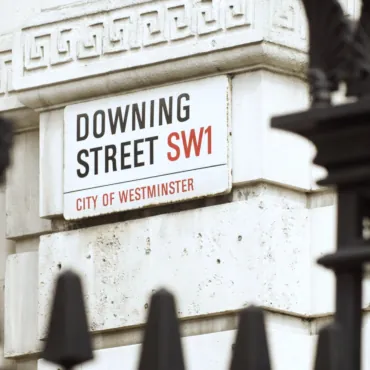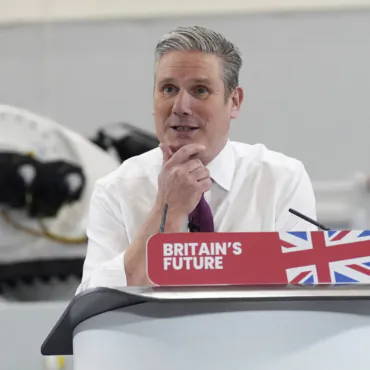On the eve of the congress, a scandal erupted over the “gifts” (freebies) that Keir Starmer and his wife Victoria received from billionaire party donor Lord Alli. Starmer, as he should, declared the gifts he received personally, retroactively declared the gifts made to his wife, but his fellow party members criticize him for failing to quell the scandal before the conference and allowing it to grow.
Moreover, as the scandal unfolded, more details emerged, such as the fact that Deputy Prime Minister Angela Rayner had stayed with a friend in Lord Alli’s expensive New York apartment. Starmer eventually admitted mistakes and promised not to do so again in the future, but he did not do so until last Friday, on the eve of the conference, when he announced he would no longer accept donations, and the fallout, as they say, remained. And even his admission that there is a “perception” problem with all these revelations at a time when the government is taking away winter fuel payments from ten million pensioners didn’t help much.
Falling ratings
In the latest poll by ratings agency Ipsos, half of British voters say they are disappointed with the way Labor has run the country so far, as the overall rating of the government and the prime minister continues to decline. How concerned should Keir Starmer be?
An FT columnist compares the results of Starmer’s start in office with his predecessors. He notes that after 80 days in office, Keir Starmer’s approval rating is worse than any of his predecessors except Liz Truss. What he finds more interesting, however, are comparisons with prime ministers re-elected to their first term since Ipsos (then RSL) began measuring approval ratings: Margaret Thatcher, Tony Blair and David Cameron. Both Thatcher’s and Cameron’s ratings in their first terms achieved less of a drop than Starmer’s do now.
And here we have to remember that the low points of approval came after the very painful budgets of 1981 and 2012.
Now almost everyone is expecting a very painful budget, which will be announced on October 30. However, the Prime Minister himself not only does not hide the fact that the budget will be painful, he does not get tired of warning about it. However, at the party conference in Liverpool, he did not pedal the theme of the upcoming heavy budget, but tried to keep an optimistic tone and give out generous promises.
Starmer promises change
The Labor Party conference, like the election campaign, was held under the slogan: “CHANGE”, in other words, reform.
The most painful reform was announced even before the conference started: the removal of the one-off winter heating allowance for 10 million pensioners. For some, like me, this money was just a pleasant addition to their pensions, nothing more, but for a huge number of people who used to receive the “fuel” allowance, it is a serious blow. As we have written before, only the most destitute pensioners who are sitting on Universal Credit benefits, i.e. unemployed or low paid workers, are now entitled to this benefit. However, many older people fall into the ‘gap’ between the two categories: their income is not enough to allow them to receive Universal Credit benefits, but not enough to fully pay for heating in the winter. So far, Starmer has not backed down on his plans to deprive those on low incomes of this money. But on Wednesday, towards the end of conference, he was defeated by his own party! A majority of Unite members voted in favor of a resolution demanding that plans to strip pensioners of their “fuel” allowance be withdrawn. The resolution is non-binding but demonstrates how unpopular one of the first steps of the new government is.
Government plans in broad strokes
But the Prime Minister promised that the government would provide housing for veterans of all wars who need it, as well as young people brought up in children’s homes and victims of domestic violence. There was some good news for Scotland in his speech: he confirmed that the new state-owned energy company GB Energy, on which the government has high hopes, will be based in Aberdeen.
We didn’t hear much specificity in Starmer’s plans, he described the government’s plans in rather broad strokes, but without dropping the optimistic tone, he promised to reform the health care system, reduce the rate of illegal immigration and solve other long-standing problems left by the old government. But, as Keir Starmer pointed out, the party’s program is a 10-year plan, so, judging by this timeline, the Labor government expects to be in power for at least two terms.
The Prime Minister could not avoid the situation in the Middle East. He called for de-escalation of the conflict on the border between Lebanon and Israel, an immediate ceasefire in Gaza, the return of hostages and renewed efforts to resolve the conflict on the basis of the “two States for two peoples” solution. When referring to the return of Israeli hostages, he misspoke and instead of the word “hostages”, he said the word “sausages”. He quickly corrected himself, but this mistake has already become the subject of jokes and the demand for the return of “sausages” will be remembered for a long time to come. As will the scandal with suits, glasses, tickets to soccer matches and concerts, and dresses for his wife, received as a gift from his rich uncle, Lord Alli, the party’s sponsor.
